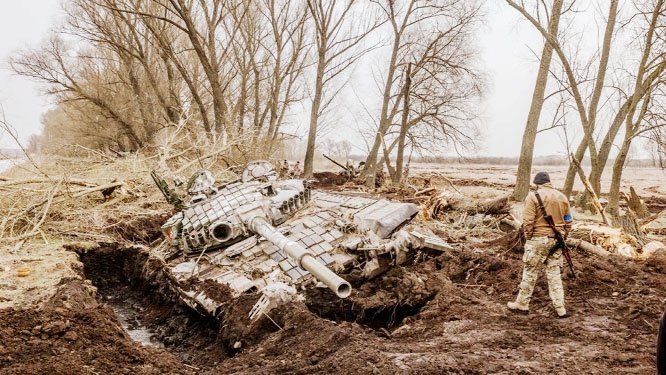
Al Jazeera :
The current German government – a coalition of the Social Democrats (SPD), the Greens and the Free Democrats – has been repeatedly accused of adopting a relatively soft line towards Moscow, compared with its European and American allies.
Ukraine’s ambassador to Germany, Andriy Melnyk accused the SPD of harbouring “Putin-friendly politics” and said in a tweet, “The SPD has not yet said goodbye to its inglorious past in Russia. One thing is to admit mistakes and another thing is to draw the right conclusions and act boldly today.”
Wolfgang Ischinger, former German ambassador to the United States, who also served as chairman of the Munich Security Conference from 2008 to 2022, explained that Germany’s Russia policy is rooted in history.
“After the end of World War II, a large group of Germans believed that if there is stability in the country today, it is because hundreds of thousands of soldiers from the Soviet Union left German territory without firing a single shot,” he told Al Jazeera.
“Many in Germany believe that the country owes a certain debt of gratitude to the Kremlin, in turn initiating economic and political partnerships with Russia.”
But Ischinger said that over the years, Germany has failed to realise that Russia is no longer interested in partnership.
“Russia has been keen to turn the clock back in time to the Soviet era, for quite some time now,” he said. “Berlin continued to believe in the idea of partnership, even while others had already started to warn Germany that it would probably … pay a price for not abandoning this idea.”
Since the war began in Ukraine, Berlin has begun phasing out its trade relations by imposing sanctions against Russian oligarchs and businesses and supporting a proposed European Union ban on Russian oil.
But some German officials continue to maintain a close relationship with the Kremlin.
Former German Chancellor Gerhard Schröder has kept key positions at Russia’s oil firm Rosneft and energy giant Gazprom. While he has participated in efforts to broker peace, his bond with Putin has been criticised.
“For a long time, German decision-makers were under the illusion of a ‘change through trade’ policy approach. However, Gerhard Schröder in particular has also lost his ‘democratic compass’ towards Russia by turning his close ties with Putin into a personal benefit for himself and by refusing to dissociate from the Russian leader – despite Russia’s aggression in Ukraine,” Stefan Scheller, an associate fellow at the German Council on Foreign Relations told Al Jazeera.
But, according to Ischinger, the former chancellor’s relationships and business affairs are a private matter.
“Germany has a system, which is a system based on freedom. The former chancellor can conduct whatever business he wishes to do, just like anybody else. He does get criticised every day by almost everyone because people don’t like his close association with the Kremlin. But that’s his problem and not the problem of the German government,” he told Al Jazeera.
Meanwhile, Chancellor Olaf Scholz recently upset some when he told German broadcaster ZDF that he would not visit Kyiv – a decision that came after Ukraine snubbed German President Frank-Walter Steinmeier.
Ukraine had said Steinmeier would not be welcome in the capital because of his close relations with Putin. But the president has admitted to “getting Putin wrong” and that the now-halted Nord-Stream 2 project, which he advocated, was a mistake.
In an effort to boost Germany’s support to Ukraine militarily, Scholz recently eased Berlin’s restrictive arms export policy and agreed to supply lethal weapons and Gepard tanks to Kyiv.
As some German protesters slammed him as a warmonger, Scholz gave a fiery speech on labour day, saying: “I respect any pacifism, I respect any attitude. But it must seem cynical to a citizen of Ukraine to be told to fight back against Putin’s aggression without weapons.”
“It’s true that Germany has been late in supporting Ukraine. But it is not true that we never showed up,” said Ischinger. “We have learned from our past mistakes and the government is now on the right course of defending Ukraine together with other EU nations, and shaping the new future of European security.”
Source: Al Jazeera

